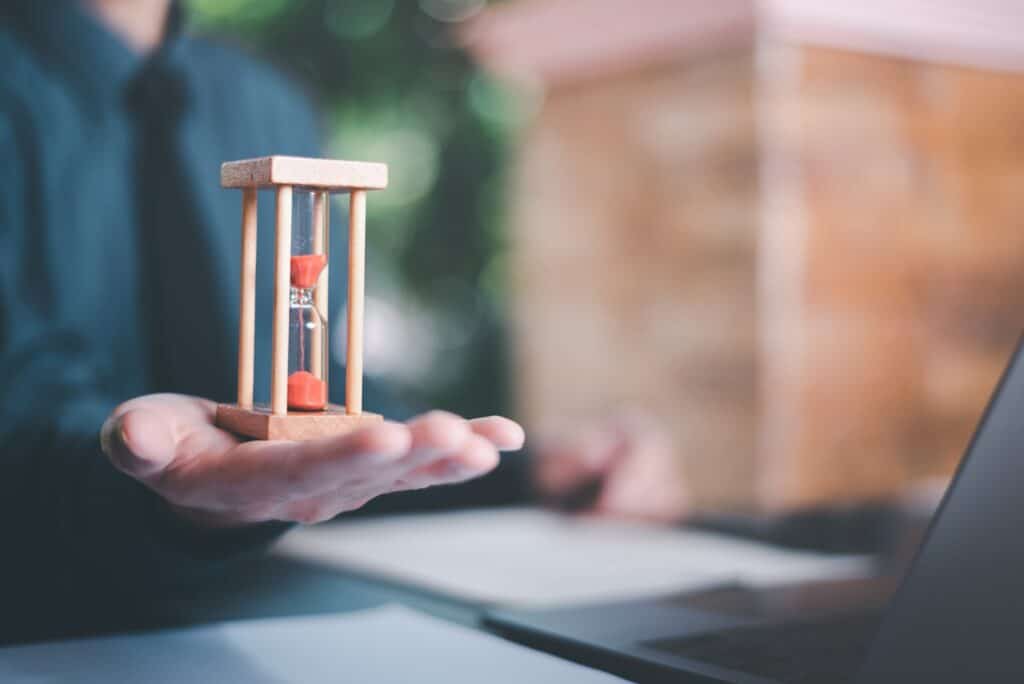
While many associate self-care with indulgent spa days or luxurious vacations, it’s much more than that. At its core, self-care is about nurturing oneself, both physically and mentally. It’s about creating a life that you don’t need to escape from. More importantly, practicing self-care is a stepping stone to developing independence—a trait that allows you to navigate life’s challenges with grace and resilience.
The value of independence in self-care rests in allowing people to take charge of their own well-being and health. Self-care management increases self-reliance, creates resilience against external challenges, and promotes personal growth. Independence promotes long-term health benefits by ensuring sustainable habits.
So, what is the connection between these two?
Read on to know more about the fascinating connection between independence and self-reliance, and how you can foster a stronger sense of independence by focusing on your well-being.
What is independent self-care?
Independent self-care refers to the conscious actions and choices an individual makes in their daily life to promote their own well-being, both physically and mentally. It’s about taking the reins of your own health and happiness, without relying heavily on external sources or influences. This doesn’t mean isolating oneself or avoiding professional help when needed, but rather recognizing when and how to best meet one’s own needs.
Key Points:
- Self-awareness: At the heart of independent self-care is a deep understanding of one’s own needs, desires, and limits. It’s about knowing what makes you tick, what uplifts your spirits, and what drains your energy.
- Proactivity: Instead of waiting for problems to arise or for someone else to notice, independent self-care is about taking proactive steps. This could mean setting aside time each day for relaxation, seeking out resources to manage stress, or making dietary choices that boost energy and health.
- Autonomy: This is about making decisions for oneself, based on one’s own understanding and feelings. It’s the opposite of being passive or simply going along with what someone else suggests.
- Responsibility: With independence comes responsibility. This means not only making choices but also accepting the outcomes, both good and bad, of those choices.
- Continuous Learning: The journey of self-care is ongoing. As we grow and change, our needs also evolve. Independent self-care involves regularly checking in with oneself, learning, and adapting.
Why is independence in self-care important?
Independent self-care is a journey of empowerment. It’s about recognizing your worth, honoring your needs, and taking deliberate steps to ensure your well-being. To further understand its value, let’s go over some of the key roles of independence in self-care.

Managing well-being builds self-esteem.
Every time you prioritize your needs and take regular time for yourself, you’re reinforcing your self-worth.
When you take charge of your well-being, you’re sending a powerful message to yourself: “You matter.”
This boosts confidence and makes you feel valued. It’s also worth noting that many people confuse self-love with narcissism, but they are fundamentally different.
Personalized routines cater to individual needs.
Everyone is unique. What works for one person might not work for another. By crafting your own self-care routine, you ensure that it’s tailored to your specific needs, preferences, and lifestyle.
Facing challenges fosters mental strength.
Life isn’t always smooth sailing. By taking responsibility for your self-care, you learn to face challenges head-on. This not only builds resilience but also equips you with the skills to handle future obstacles.
Direct control optimizes time management.
You know your schedule better than anyone else. By being in charge of your self-care, you can seamlessly integrate it into your daily routine, ensuring that it doesn’t get sidelined.
Taking charge promotes personal growth.
Emotions play a significant role in self-care, and it’s essential to express your feelings, like crying, freely. Every decision you make, every boundary you set, and every goal you achieve in your self-care journey contributes to your personal growth and overall well-being. It’s a continuous process of learning and evolving.
Independence ensures uninterrupted care.
Relying on external factors or people can sometimes lead to interruptions in your self-care routine. By being independent, you ensure consistency, which is key to reaping the benefits.
Making choices leads to responsibility.
When you make choices, you also take responsibility for them. This instills a sense of accountability, making you more committed to your self-care journey.

Directing care is cost-effective.
By knowing exactly what you need and when you need it, you can make cost-effective decisions. This not only saves money but also ensures that resources are used optimally.
Independence sharpens problem-solving.
When challenges arise in your self-care journey, being independent forces you to find solutions. This hones your problem-solving skills, making you more adept at handling similar challenges in the future.
Achieving self-set goals brings satisfaction.
There’s a unique sense of satisfaction in setting a goal and achieving it on your own terms. It’s a testament to your dedication, commitment, and hard work.
How do care routines promote independence?
You’ve probably heard the saying, “Consistency is key.” This couldn’t be truer when it comes to self-care. Establishing a routine is like setting up a roadmap for your well-being. Some people even consider self-care as a hobby, dedicating specific time and resources to it. This personal time to oneself helps to cultivate a strong sense of independence in more ways than one.
But how exactly do these routines foster independence?
Routines reduce guidance needs by fostering familiarity.
The more you stick to a routine, the more familiar it becomes. Over time, you’ll find that you no longer need to rely on external guidance or reminders. You’ll instinctively know what to do, making the process seamless and efficient.
Consistent practices maintain essential life skills.
Think of your routine as a gym for your life skills. Whether it’s managing time, setting priorities, or making decisions, consistent practices help maintain and refine these skills, ensuring they’re always sharp and ready for use.
Structured routines boost confidence through decision-making.
Every time you follow your routine, you’re making a series of decisions. These might seem small, but they add up. Over time, this consistent decision-making boosts your confidence, making you more self-assured in other areas of life.
Established routines enhance punctuality and time allocation.
With a set routine, you know exactly what needs to be done and when. This clarity helps in allocating time efficiently and ensures that you’re always punctual, be it for self-care activities or other commitments.

Daily task ownership instills accountability.
When you own your daily tasks, you’re essentially taking responsibility for your well-being. This sense of ownership instills a deeper sense of responsibility, making you more accountable to yourself.
Predictable routines set clear expectations, minimizing anxiety.
Knowing what to expect can be a huge relief. Predictable routines provide this clarity, setting clear expectations and thereby minimizing any anxiety or uncertainty.
Routines make larger goals attainable through task breakdown.
Big goals can be daunting. However, breaking them down into smaller tasks within a routine makes them more manageable and attainable. It’s like climbing a mountain one step at a time.
Regular reflection in routines fosters self-awareness.
Incorporating moments of reflection in your routine helps in understanding yourself better. It provides insights into what’s working, what’s not, and where changes might be needed.
Routines promote self-sufficiency by optimizing resource use.
With a clear routine, you know exactly what resources you need and when. This clarity allows for optimal use of resources, ensuring that nothing goes to waste.
Consistency in routines ensures safety measures are upheld.
Safety is paramount, especially when it comes to self-care. A consistent routine ensures that all safety measures are always upheld, providing peace of mind.
How can you practice self-care to develop independence?
Practicing self-care is a significant path toward independence and self-reliance; it goes well beyond pampering oneself. Self-care techniques help us not only nurture our well-being but also to strengthen our independence. And while there are many, it’s vital to identify which ones are the most important self-care activities for individual well-being.
Here are some concrete steps you can take to combine self-care and self-sufficiency, making sure that you’re not only taking care of your health but also developing a sense of independence.
Establish boundaries to protect energy and time.
Setting boundaries is essential for your well-being. Think of it as creating a protective bubble around your energy and time. By clearly defining what you’re willing to accept and what you’re not, you empower yourself. This not only ensures that your energy isn’t drained by unnecessary distractions but also gives you the freedom to focus on what truly matters. Remember, it’s okay to say no when needed. By doing so, you’re prioritizing your needs and taking a step towards a more independent self.
Sleep 7-9 hours for optimal health.
Sleep isn’t just about resting; it’s about rejuvenating. Your body and mind undergo a lot of repair and regeneration while you sleep. Ensuring you get between 7-9 hours of quality sleep is crucial. It sharpens your cognitive abilities, boosts your mood, and keeps you energized. By prioritizing sleep, you’re setting a strong foundation for an independent and productive day ahead.
Choose whole foods for well-being.

What you fuel your body with directly impacts how you feel and function. Opting for whole foods, those that are unprocessed and unrefined, is a game-changer. These foods are packed with nutrients that your body needs to thrive. By making conscious food choices, you’re taking charge of your health, ensuring that your body has all it needs to support your journey toward independence.
Exercise 30 minutes daily for a mood boost.
Exercise is like a magic pill for your mood. Just 30 minutes a day can make a world of difference. It releases endorphins, the feel-good hormones, lifts your spirits, and keeps you energized. Plus, the discipline and commitment required to stick to an exercise routine foster independence. So, whether it’s a brisk walk, a yoga session, or a high-intensity workout, make sure to get moving. Your body and mind will thank you.
Practice 10-minute mindfulness to reduce stress.
Taking just 10 minutes a day to practice mindfulness can ground you. It’s about being present, fully experiencing the moment without judgment. This simple practice can reduce stress, increase focus, and enhance clarity. By incorporating mindfulness into your daily routine, you’re equipping yourself with an effective coping mechanism that promotes healthy problem-solving, which fosters mental well-being and independence.
Unplug from devices for mental clarity.
While devices keep us connected, they can also clutter our minds. Taking time to unplug, even if it’s just for an hour, can work wonders. It gives your brain a much-needed break, allowing it to reset. This digital detox promotes mental clarity, ensuring you’re at your best and most independent self. Focus your energy elsewhere for a change, like a casual hobby.
Learn a new skill monthly for growth.
Learning never stops. Every new skill you acquire adds a feather to your cap. Whether it’s a new language, a cooking technique, or a musical instrument, learning something new every month keeps your brain active and fosters growth. It not only boosts your confidence but also reinforces the belief that you’re capable of anything. And with each new skill, you’re taking a step closer to a more independent you.
Set and follow a budget for financial stability.
Budgeting is more than just tracking expenses; it’s about taking control of your financial future. By setting a budget, you’re making a conscious decision about how you want to spend your hard-earned money. It allows you to prioritize your needs, save for future goals, and avoid unnecessary debt. When you have a clear financial plan, you’re not only ensuring stability but also fostering a sense of independence. Remember, every dollar you save or invest is a step closer to your financial freedom.
Regularly connect with loved ones for meaningful relationships.
Building and maintaining meaningful relationships is vital for your emotional well-being. While independence is essential, humans are inherently social beings. Regularly connecting with family and friends provides a support system, a sense of belonging, and an avenue to share joys and challenges. These connections act as anchors, grounding you and reminding you of your worth. So, make it a point to reach out, catch up, and nurture these bonds. They’re the pillars of your emotional independence.
Consult a therapist when overwhelmed with mental health.
There’s no shame in seeking help when you feel overwhelmed. Therapists are trained professionals who can provide guidance, coping strategies, and a safe space to express your feelings. By consulting a therapist, you’re taking a proactive step toward understanding and managing your emotions. It’s a sign of strength and self-awareness. Remember, mental health is as crucial as physical health, and taking care of it is a testament to your commitment to independence.
Spend time outdoors for rejuvenation.

Nature has a unique way of healing and rejuvenating. Spending time outdoors—whether it’s a walk in the park, a hike in the mountains, or just sitting by the beach—can do wonders for your mood and energy. The fresh air, the sound of birds, and the greenery can instantly lift your spirits. It’s a simple yet effective way to disconnect from the daily grind and reconnect with yourself. So, make it a point to embrace nature regularly. It’s a breath of fresh air for your soul.
Avoid negative news for a positive mindset.
While staying informed is essential, it’s equally crucial to filter out negative news. Constant exposure to distressing events can take a toll on your mental well-being. By choosing to focus on positive stories and avoiding sensationalized news, you’re fostering a positive mindset. Remember, your thoughts shape your reality. So, curate them wisely for a more independent and optimistic outlook.
Journal weekly for self-awareness.
Journaling is a powerful tool for self-reflection. By penning down your thoughts, feelings, and experiences, you’re creating a window into your soul. It allows you to understand your emotions, recognize patterns, and gain clarity. Setting aside time each week to journal can lead to increased self-awareness, helping you make informed decisions and fostering independence. So, grab a pen and let your thoughts flow. It’s a date with your inner self.
Drink 8 glasses of water for alertness.
Water is the elixir of life. Drinking adequate water daily ensures that your body functions optimally. It boosts metabolism, aids digestion, and keeps your skin glowing. More importantly, staying hydrated enhances cognitive functions, keeping you alert and focused. By ensuring you drink at least 8 glasses of water daily, you’re taking care of your physical well-being, setting the stage for an active and independent day.
Reward minor achievements for confidence.

Every achievement, no matter how small, is a step forward. Recognizing and rewarding these minor milestones can boost your confidence. It reinforces the belief that you’re on the right track and motivates you to push further. Whether it’s completing a task ahead of time, sticking to a routine, or learning something new, take a moment to pat yourself on the back. These little rewards act as fuel, propelling you towards greater independence.
Conclusion
Self-care is an ongoing commitment to yourself. It’s about recognizing your worth and taking steps to ensure your well-being. While the practices highlighted in this article are a great starting point, remember that self-care is deeply personal. What works for one might not work for another. So, listen to your body, trust your instincts, and carve out a self-care routine that resonates with you.
As you set out on this path of self-care, you’ll find that not only are you taking care of your well-being, but you’re also fostering a sense of independence that will stand you in good stead through life’s ups and downs.









